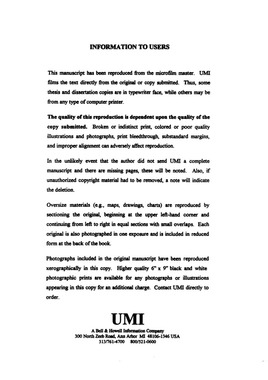| dc.contributor.advisor | Dillon, Connie, | en_US |
| dc.contributor.author | Rambo, Gladys Alma. | en_US |
| dc.date.accessioned | 2013-08-16T12:29:51Z | |
| dc.date.available | 2013-08-16T12:29:51Z | |
| dc.date.issued | 1997 | en_US |
| dc.identifier.uri | https://hdl.handle.net/11244/5537 | |
| dc.description.abstract | Findings. Analyses revealed that the variable most predictive of students' perceptions of learning in the clinical environment were their beliefs of nursing self-efficacy. Significant correlations were also found between high levels of self-efficacy and higher perceptions of learning and between high levels of anxiety and lower perceptions of learning. No significant relationships were found between high levels of self-efficacy, low anxiety and perceptions of teacher effectiveness, nor were significant relationships found between perceptions of teacher effectiveness and perceptions of learning. Additionally, the best predictors of nursing self-efficacy were total self-efficacy and perceptions of learning. The best predictor of anxiety was nursing self-efficacy. | en_US |
| dc.description.abstract | Data analysis. Methods of analyses were correlation, multiple regression and t-tests for independent groups. | en_US |
| dc.description.abstract | Conclusions. Variables in this study were shown to be valid predictors of perceptions of learning in the clinical environment. Nursing self-efficacy contributed most to students' perceptions of learning. | en_US |
| dc.description.abstract | The purposes of this study were: to describe relationships among baccalaureate nursing students' self-efficacy, anxiety, perceptions of clinical instructor effectiveness and their perceptions of learning in the clinical environment and to provide information nurse educators may utilize to facilitate learning in the clinical environment. | en_US |
| dc.description.abstract | Procedure. The sample consisted of 83 female, senior baccalaureate nursing students from two private and two public universities. Bandura's Social Learning Theory was used as the conceptual framework. All students completed the Self-efficacy Questionnaire (SES), the T-Anxiety portion of Spielberger's State-Trait Anxiety Inventory (STAI-T), the Nurse Clinical Teacher Effectiveness Inventory (NCTEI) and the Stewart Evaluation of Nursing Scale (Stewart Scale). The SES was modified to include 13 items special to nursing self-efficacy. | en_US |
| dc.format.extent | xii, 136 leaves ; | en_US |
| dc.subject | Health Sciences, Nursing. | en_US |
| dc.subject | Education, Adult and Continuing. | en_US |
| dc.subject | Anxiety. | en_US |
| dc.subject | Teacher effectiveness. | en_US |
| dc.subject | Nursing Study and teaching. | en_US |
| dc.subject | Education, Higher. | en_US |
| dc.subject | Self-efficacy. | en_US |
| dc.subject | Health Sciences, Education. | en_US |
| dc.title | Relationships among self-efficacy, anxiety, perceptions of clinical instructor effectiveness and senior baccalaureate nursing students' perceptions of learning in the clinical environment. | en_US |
| dc.type | Thesis | en_US |
| dc.thesis.degree | Ph.D. | en_US |
| dc.thesis.degreeDiscipline | Department of Educational Leadership and Policy Studies | en_US |
| dc.note | Major Adviser: Connie Dillon. | en_US |
| dc.note | Source: Dissertation Abstracts International, Volume: 58-08, Section: A, page: 2960. | en_US |
| ou.identifier | (UMI)AAI9806330 | en_US |
| ou.group | Jeannine Rainbolt College of Education::Department of Educational Leadership and Policy Studies | |
